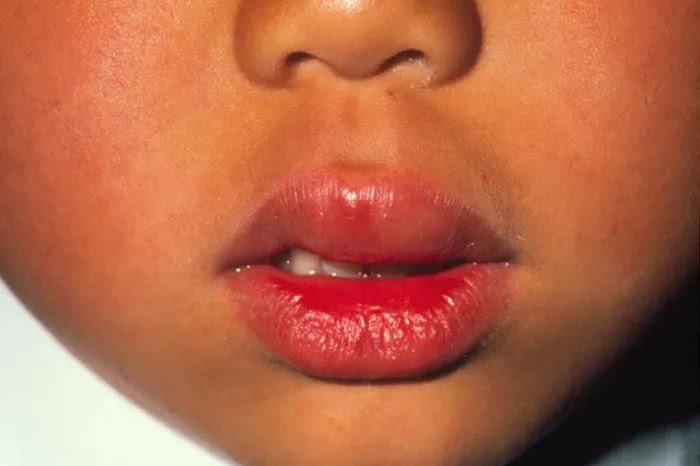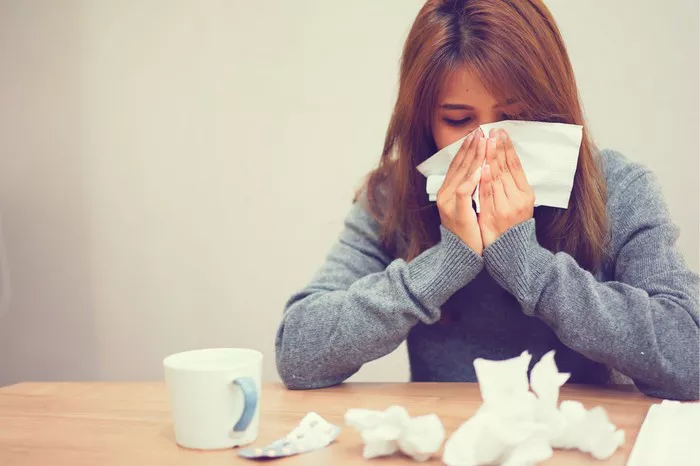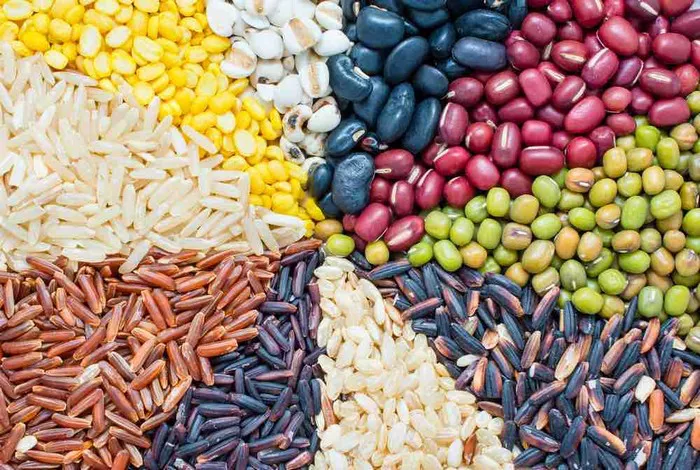Mangoes are a delicious and popular tropical fruit enjoyed by millions around the world. However, for some individuals, consuming mangoes can lead to an allergic reaction, particularly when the fruit comes into contact with the lips or skin. Mango allergy on the lips can cause symptoms such as itching, redness, swelling, and blistering, making it uncomfortable and unpleasant. In this article, we’ll explore effective treatment strategies for managing mango allergy on the lips, offering insights into soothing remedies, preventive measures, and when to seek medical attention.
Understanding Mango Allergy on Lips
Before we delve into treatment strategies, let’s first understand what causes mango allergy on the lips. Mangoes contain natural compounds known as urushiol, which are also found in poison ivy and poison oak. Urushiol can cause an allergic reaction in sensitive individuals when it comes into contact with the skin, leading to symptoms such as itching, redness, swelling, and blistering.
When mangoes are eaten, the urushiol in the fruit can also trigger an allergic reaction in some individuals, resulting in symptoms such as oral itching, swelling of the lips or tongue, and in severe cases, difficulty breathing or anaphylaxis. However, mango allergy on the lips is most commonly seen in individuals who come into direct contact with the fruit, such as when handling or peeling mangoes, leading to contact dermatitis on the lips.
Exploring Treatment Strategies for Mango Allergy on Lips
Now, let’s explore a range of effective treatment strategies for managing mango allergy on the lips, offering relief from symptoms and promoting healing:
1. Wash the Affected Area
If you develop symptoms of mango allergy on your lips, the first step is to wash the affected area thoroughly with mild soap and water. This can help remove any traces of urushiol from the skin and reduce the severity of the allergic reaction. Be sure to wash your hands thoroughly as well, to prevent spreading the allergen to other parts of your body.
2. Apply a Cold Compress
Applying a cold compress to the affected area can help reduce inflammation and soothe itching and discomfort. Simply wrap a few ice cubes in a clean cloth or towel and apply it to your lips for 10-15 minutes at a time. Avoid applying ice directly to the skin, as this can cause ice burns or frostbite.
3. Use Over-the-Counter Hydrocortisone Cream
Over-the-counter hydrocortisone cream can help relieve itching, redness, and swelling associated with mango allergy on the lips. Apply a thin layer of hydrocortisone cream to the affected area, following the instructions on the packaging. Be sure to avoid getting the cream in your mouth or eyes.
4. Take Antihistamines
Antihistamines can help reduce allergic symptoms such as itching, swelling, and redness. Over-the-counter oral antihistamines such as diphenhydramine (Benadryl) or loratadine (Claritin) can provide relief from mango allergy on the lips. Follow the dosage instructions on the packaging and consult with a healthcare professional if you have any questions or concerns.
5. Use Moisturizing Lip Balm
Applying a moisturizing lip balm can help soothe dryness and discomfort associated with mango allergy on the lips. Look for a lip balm that contains ingredients such as beeswax, shea butter, or coconut oil, which can help hydrate and protect the lips. Avoid lip balms with added fragrances or flavors, as these can potentially irritate the skin further.
6. Try Natural Remedies
Several natural remedies can help soothe symptoms of mango allergy on the lips. Aloe vera gel, for example, has anti-inflammatory and healing properties that can help reduce redness and swelling. Apply a thin layer of pure aloe vera gel to the affected area and allow it to dry. Repeat as needed for relief.
7. Avoid Scratching or Picking at the Lips
While it may be tempting to scratch or pick at your lips when they are itching or swollen, this can actually worsen symptoms and delay healing. Avoid scratching or picking at the lips, as this can lead to further irritation, infection, and scarring. Instead, focus on gentle, non-invasive treatments to soothe discomfort and promote healing.
8. Stay Hydrated and Avoid Triggers
Staying hydrated can help support skin health and promote healing of the lips. Drink plenty of water throughout the day to keep your body hydrated and your lips moisturized. Additionally, avoid exposure to mangoes or other known triggers of your allergy to prevent further reactions. If you need to handle mangoes, consider wearing gloves to protect your skin.
When to Seek Medical Attention
While mild cases of mango allergy on the lips can often be managed at home with self-care measures, severe or persistent symptoms may require medical attention. Seek medical help if you experience any of the following:
1. Difficulty breathing or swallowing
2. Swelling of the lips, tongue, or throat that affects your ability to speak or breathe
3. Severe pain or blistering on the lips
4. Symptoms that worsen or do not improve with home treatment
Preventing Mango Allergy on Lips
Preventing mango allergy on the lips involves avoiding contact with the fruit or taking precautions to minimize exposure to the allergen. If you know you are allergic to mangoes, take the following steps to prevent allergic reactions:
1. Avoid handling or consuming mangoes
2. Wear gloves when handling mangoes or mango products
3. Wash your hands thoroughly after handling mangoes
4. Be cautious when dining out or purchasing packaged foods, as mangoes may be used as ingredients in sauces, salads, or desserts
By taking proactive steps to avoid exposure to mangoes and implementing effective treatment strategies when needed, individuals with mango allergy on the lips can manage their symptoms and enjoy improved quality of life. If you suspect you have a mango allergy or experience recurrent allergic reactions, consult with a healthcare professional for a proper diagnosis and personalized treatment plan. With the right approach, you can effectively manage mango allergy on the lips and prevent future reactions, allowing you to enjoy life to the fullest.
[inline_related_posts title=”You Might Be Interested In” title_align=”left” style=”list” number=”6″ align=”none” ids=”7308,7305,7246″ by=”categories” orderby=”rand” order=”DESC” hide_thumb=”no” thumb_right=”no” views=”no” date=”yes” grid_columns=”2″ post_type=”” tax=””]

































